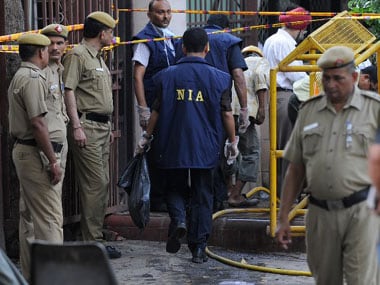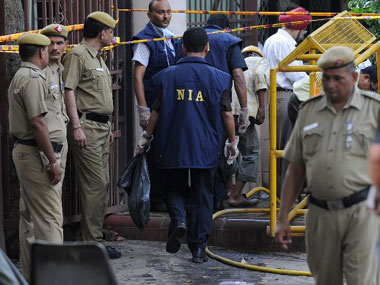Earlier this month, a petition was filed before the Jammu and Kashmir High Court challenging the application of the National Investigation Agency (NIA) Act to Jammu and Kashmir. Further, a bill to amend the NIA Act was passed in the Lok Sabha on 15 July which seeks to strengthen the existing law. In light of this, the challenge in the Jammu and Kashmir High Court raises important legal and constitutional questions. NIA Act and the Constitution The NIA was established in response to the 26/11 Mumbai attacks in 2008. The NIA Act is a parliamentary law that aimed to provide for a special investigation agency at the national level to investigate and prosecute offences affecting the sovereignty, security and integrity of India. If any offence is committed under one of the laws listed in its Schedule (such as the Unlawful Activities (Prevention) Act, 1967), the NIA may investigate it throughout India and exercise all the powers of the police for that purpose. This represents a special procedure, and the NIA getting involved in a particular case typically means that the state government and police stop their investigation and let the NIA take over. [caption id=“attachment_6546201” align=“alignleft” width=“380”]  Representational image. AFP[/caption] The distribution of legislative powers in India’s federal Constitution influences Centre-state relations of this nature. Legislative powers have been assigned between the Union and the states through the lists of the Seventh Schedule. The Union List deals with matters exclusively assigned to the Parliament, the State List with matters exclusively assigned to the state legislatures and the Concurrent List deals with matters over which both the Parliament and the state legislatures have concurrent jurisdiction. Central or State laws do not specify the entry under which they have been passed, leaving it up to courts to retrospectively ascertain this crucial question in cases where the law’s constitutional validity is challenged for lack of legislative competence. Past challenges In the Malegaon blasts case, the constitutional validity of the NIA Act was challenged on this ground before the Bombay High Court. Upholding the same, the court reasoned that Parliament had the power to make laws regarding a Central Bureau of Intelligence and Investigation (Entry 8 of the Union List), criminal law and criminal procedure (Entries 1 and 2 respectively of the Concurrent List). Additionally, it held that since Parliament had competence with respect to the Scheduled Offences themselves, it also had the competence to enact a special investigation and prosecution machinery for the same. The court characterised the NIA as an agency that supplements the state government and police forces and not one that usurps their powers or displaces them altogether. This was a crucial distinction, as the power to make laws regarding police lies exclusively with the States (Entry 2 of the State List). The NIA Act in Jammu and Kashmir To understand the issues involved in the present challenge before the Jammu and Kashmir High Court, Jammu and Kashmir’s special status in the Indian constitutional scheme due to the specific historical circumstances related to Jammu and Kashmir’s accession to the Indian Union needs to be accounted for. Article 370 of the Constitution, which has been the subject of much controversy of late, is key in this regard. It stipulates that Parliament has the power to make laws for Jammu and Kashmir either in relation to matters in the Union or the Concurrent List which correspond to subjects specified in the Instrument of Accession of Jammu and Kashmir by its erstwhile ruler, or such other subjects which the President has by order specified with the concurrence of the state government. While the Instrument of Accession only mentions subjects falling under broadheads such as defence, communications and foreign affairs, subsequent presidential orders have over time made a large number of entries in the Union and Concurrent List applicable to Jammu and Kashmir. The State List, however, has been omitted in relation to Jammu and Kashmir. This means that all residuary legislative powers lie with the State Legislature. The key presidential order in this regard is the Constitution (Application to Jammu and Kashmir) Order, 1954 which has since been amended several times. The order makes the Union List and the Concurrent List applicable to Jammu and Kashmir almost in their entirety, subject to the modification of certain entries. Interestingly, the entry relating to residuary powers in Entry 97 of the Union List has been modified to only include prevention of activities either involving terrorist acts or directed towards disrupting sovereignty or territorial integrity and certain specific taxes. If Parliament enacts a law under the entries mentioned under the Instrument of Accession or the presidential orders, then the concurrence of the Jammu and Kashmir government is not required. This view has been upheld by the Supreme Court in cases such as State Bank of India v. Santosh Kumar. Issues to consider The petitioner’s argument in the present proceedings is that Parliament lacks the legislative competence to make the NIA Act applicable in Jammu and Kashmir as such a law “falls within the exclusive legislative domain” of Jammu and Kashmir’s legislature. It has further been argued that the NIA Act represents a departure from the routine procedure as it creates a special arrangement for investigation and prosecution. According to the petitioner, the regulation of such a procedure has not been assigned to Parliament, which means that the Jammu and Kashmir State Legislature has exclusive competence with respect to the same. It will be interesting to see how the court views these arguments. The key question regarding which legislative entry, if any, enables Parliament to make the NIA Act applicable to Jammu and Kashmir will be a similar question to the one dealt with by the Bombay High Court, even though the specifics will vary due to Jammu and Kashmir’s special circumstances. Essentially, the question will be whether the NIA Act usurps or supplants Jammu and Kashmir’s government and police force, or does it merely supplement them. For the rest of India, this is a question that primarily involves juxtaposing the State List entry on police on the one hand with the Concurrent List entry on criminal procedure on the other. For Jammu and Kashmir, the modified entry 97 of the Union List (terrorism, disrupting sovereignty or territorial integrity, etc.) becomes relevant in addition to the aforesaid Concurrent List entry. Although the State List is not applicable to Jammu and Kashmir as aforesaid, because “police” is not a subject specified in the Instrument of Accession or the 1954 presidential order, it is a residuary power that will still lie with the Jammu and Kashmir State Legislature. Further, the point related to the special procedure was specifically mentioned in the Bombay High Court judgment as well. If the Jammu and Kashmir High Court decides to follow the same line of reasoning, then the question would be whether Parliament has the competence to make the laws listed in the Schedule of the NIA Act applicable to Jammu and Kashmir. This consideration becomes especially relevant in light of the amendment bill which adds some new offences to the Schedule including offences related to human trafficking, counterfeit currency and cyber-terrorism. These issues will require careful consideration by the Jammu and Kashmir High Court. The authors are Research Fellows at the Vidhi Centre for Legal Policy. Views expressed are personal.
The petitioner’s argument in the present proceedings is that Parliament lacks the legislative competence to make the NIA Act applicable in Jammu and Kashmir as such a law “falls within the exclusive legislative domain” of Jammu and Kashmir’s legislature.
Advertisement
End of Article


)

)
)
)
)
)
)
)
)



